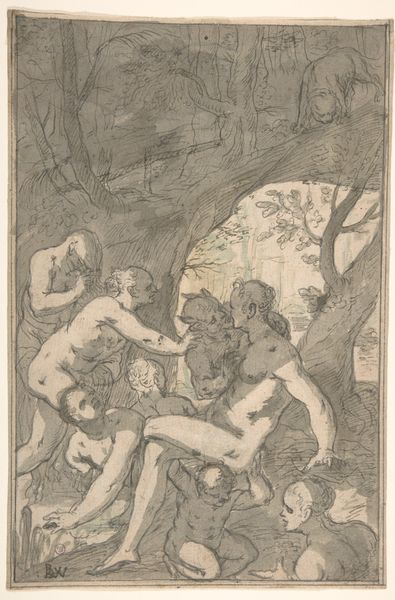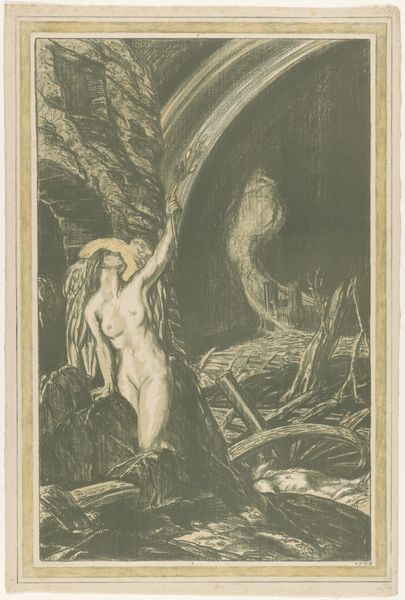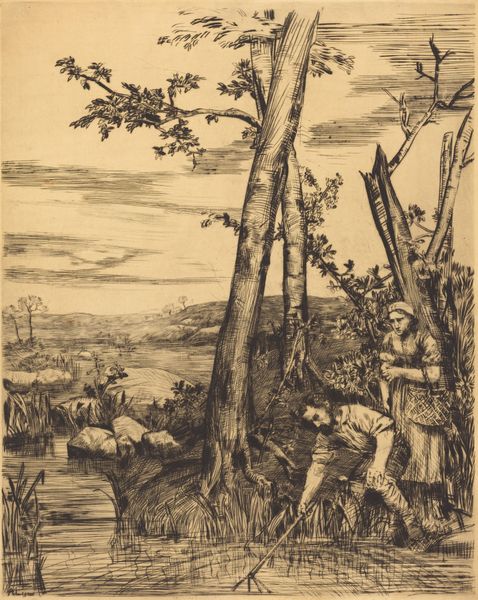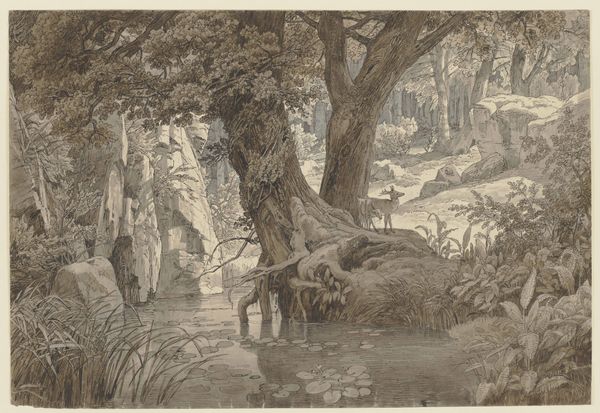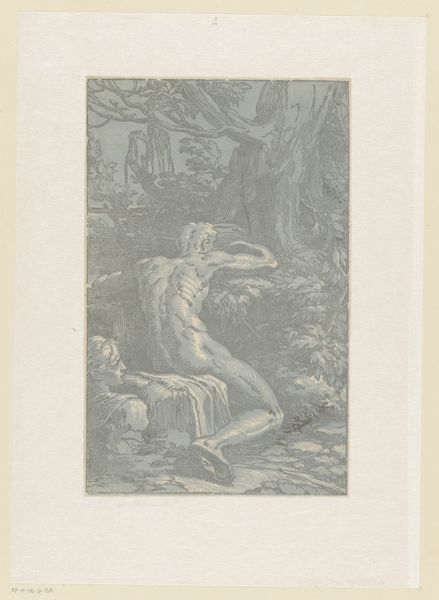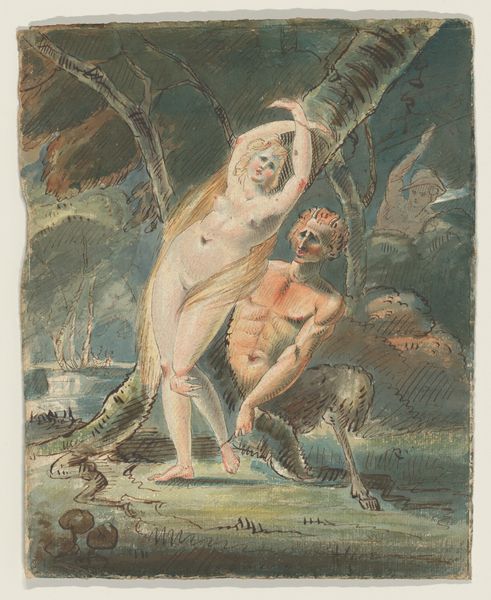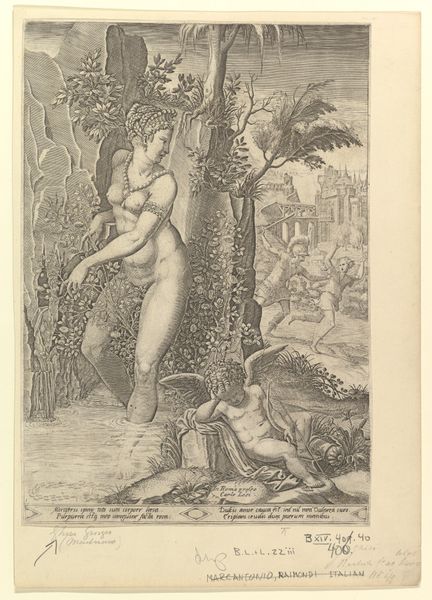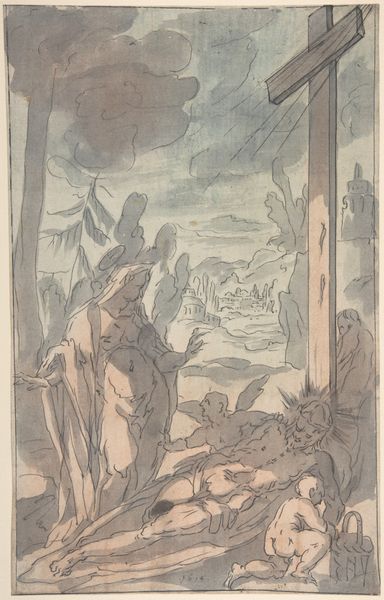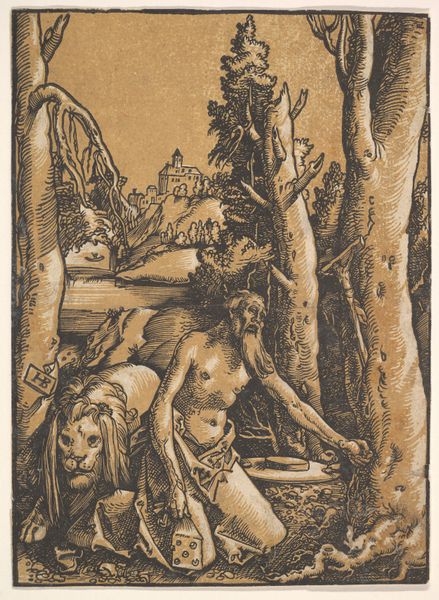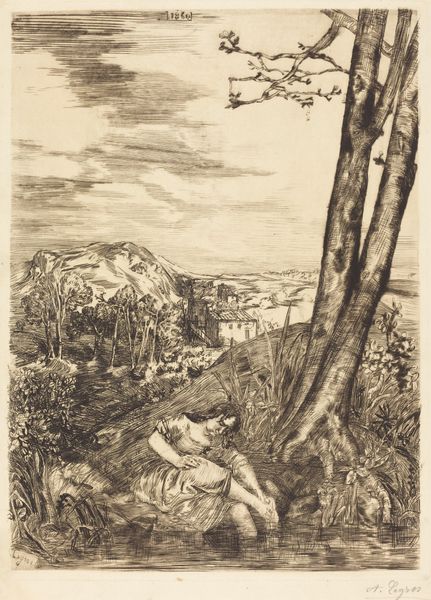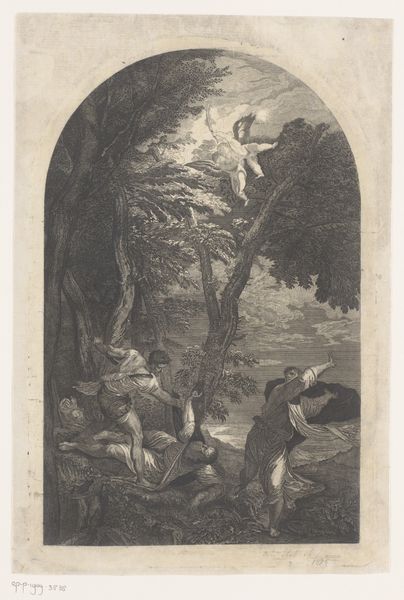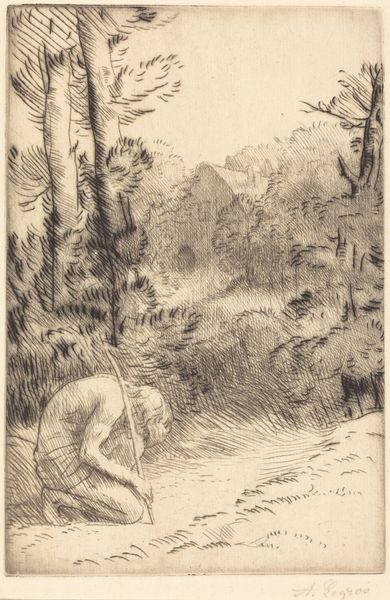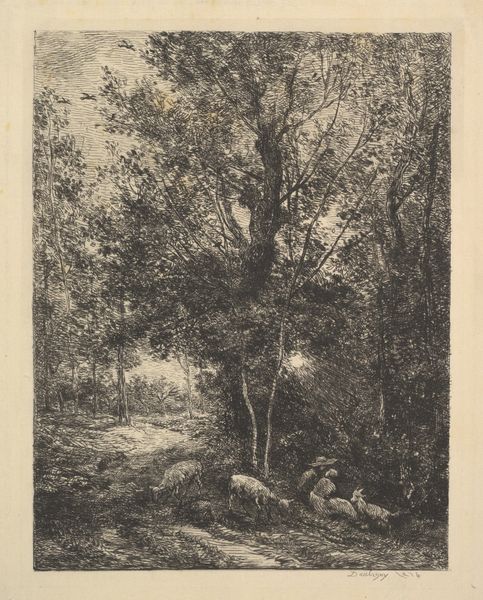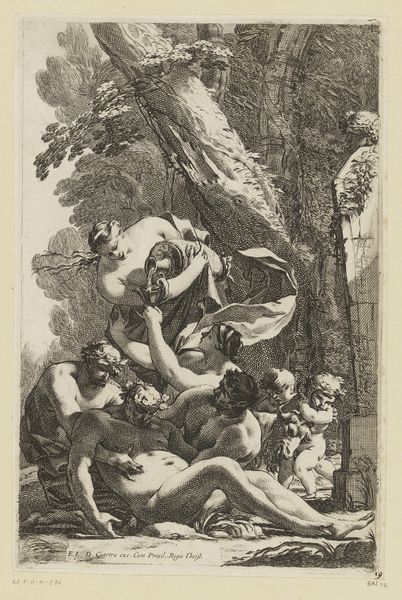
drawing, coloured-pencil
#
drawing
#
coloured-pencil
#
16_19th-century
#
landscape
#
coloured pencil
#
symbolism
#
genre-painting
#
nude
#
watercolor
Copyright: Public Domain
Curator: Hans Thoma’s "Paradise with Peacock," created in 1892, is rendered beautifully with colored pencil, currently residing here at the Städel Museum. Editor: Immediately striking, isn't it? It’s suffused with a sort of serene, almost melancholic stillness, despite the vibrant setting and the very presence of…well, of Adam and Eve, I presume. Curator: Indeed. What Thoma constructs here is an intriguing convergence of idyllic landscape and biblical narrative. The peacock, so prominently placed, disrupts any immediate sense of naive purity. Editor: Absolutely. Its positioning looms almost oppressively over the nude figures. And considering that peacocks are linked to Hera and to pride in ancient iconography, the symbolism begs exploration regarding gender and agency in this supposedly Edenic space. Note the androgynous quality that many attribute to the pair of figures, as well. Curator: One could read the relatively muted palette, in contrast to the vibrant colors one associates with paradise, as underscoring this tension you've observed. The figures, rendered with precise linework, occupy the space without truly engaging with it. Consider, too, how Thoma complicates traditional landscape conventions. The arrangement of planes, the interplay of light and shadow, serve to emphasize artifice over representation. Editor: That's right. It’s as if Thoma questions the myth of untainted origins, highlighting humanity’s discomfort with unmediated nature. The idyllic, as he shows us, is always a constructed notion. How might our understanding of such constructs reinforce exclusionary cultural systems? It makes you wonder what Thoma hoped to reveal, or even challenge, when juxtaposing such symbols of innocence alongside overt sexuality. Curator: Thoma leaves us not with answers but, rather, a beautiful pictorial meditation. It asks that we engage with ideas about representation, expectation, and meaning itself. Editor: Yes. By unsettling our vision of paradise, Thoma nudges us to consider how such ideals uphold – and obscure – more complex narratives.
Comments
No comments
Be the first to comment and join the conversation on the ultimate creative platform.
